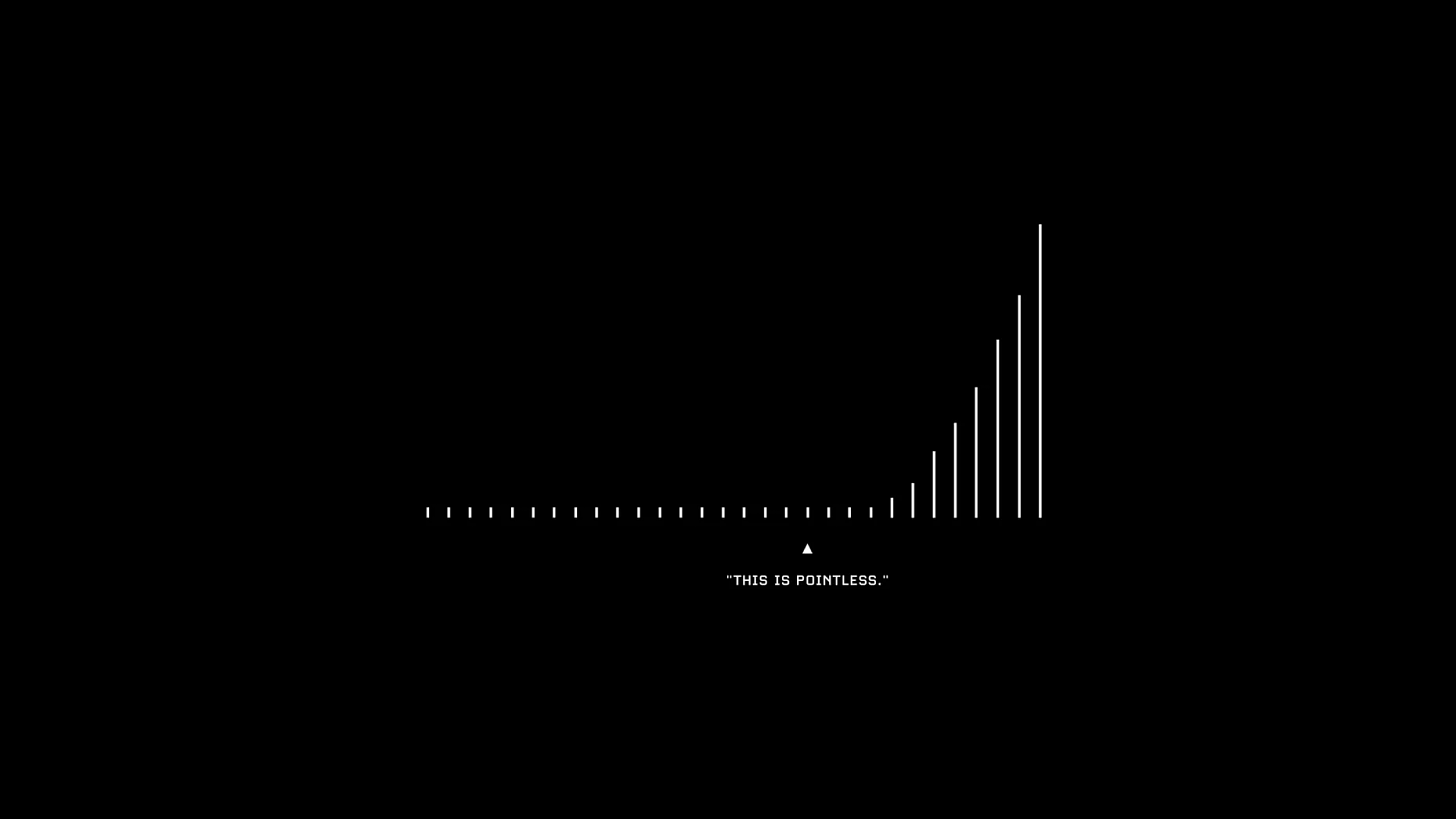Howdy 🤠
Today we’re taking a closer look at our instincts and the value of perseverance. Often our instincts are designed for self-preservation, but this rarely helps us become a bit better each day. And so without further preamble, let’s jump in.
And as always, thanks for reading!
Kevin
Learning to Ignore Our Instincts
Success is not final, failure is not fatal: It is the courage to continue that counts.
Winston Churchill
Our instincts are usually pointed in the wrong direction.
We evolved to avoid starvation, predation, and plenty of other things that could have killed us, but these threats don’t exist anymore.
We used to be rewarded for avoiding risk and preserving our energy. In our current world of abundance and opportunity, this is no longer the case. Our instinctive self-preservation is now counter-productive and, in many cases, harmful.
When we’re exercising, our brain tells us to stop before we reach our limits. When we fail, our brain tells us to try something else instead to avoid wasting energy. The exact moments when we need to muster the strength and energy to push forward are the moments we’re most likely to give up.
These tendencies are so ingrained in us, they’ve become a part of our culture. We’re prone to saying things like, “Well that’s just my luck. No point in trying anyway.” We give ourselves permission to give up before anything hard even happens because it feels like we’re protecting ourselves.
And the truth is we are protecting ourselves. We’re limiting the amount of discomfort, embarrassment, and failure we experience. But this comes with a high cost.
In limiting negative consequences, we also limit all positive outcomes.
If we’re never willing to push through a difficult workout, we’ll never be uncomfortable, but we’ll never get fit.
If we never share creative work with the world, we’ll never be embarrassed, but we’ll never improve or make an impact on anyone else.
If we’re never willing to have difficult conservations with people we care about, we’ll never have to deal with discomfort, but we’ll never be able to build deeper connections either.
Everything worthwhile comes after doing something hard for a long time with zero results.
Working to become a bit better each day is counterintuitive, but the results are undeniable. Each time we’re faced with the instinct to stop, quit, or change course, we should pause and reflect.
There are certainly times when it makes sense to cut our losses and move on to something new, but more often than not, the results we’re looking for are only a short distance past the point our instincts encourage us to give up.
Prompts
When do you commonly feel the urge to give up or move on to something else?
Do you have a tendency to quit too early or quit too late?
Where can learning to push through when you want to quit have the biggest impact in your life?
Deep Dive
Extreme Ownership - Jocko Willink
Ted Talk from a former Navy seal about his philosophy or extreme ownership.
Thanks for reading! I’ll see you next Sunday.
Kevin



